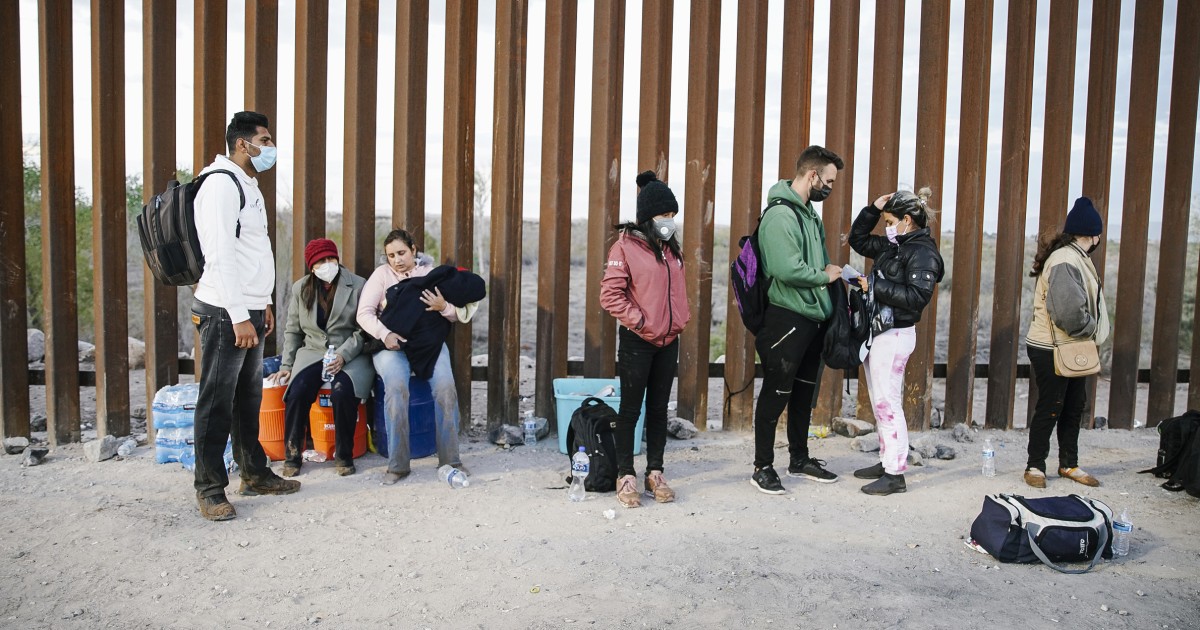
The number of Cubans arriving at the U.S.-Mexico border could reach a historic level by the end of the year.
The amount crossing the border in March outpaced those arriving from Central America, according to internal Customs and Border Protection data obtained by NBC News.
The seven-day average for Cubans crossing the border as of March 26 was 1,200, up 460 percent over the last year.
The Washington Post reported that 32,000 Cubans were taken into U.S. custody along the Mexico border during March. By comparison, around 16,600 Cubans were taken into custody in February.
Senior officials from the Department of Homeland Security say they are largely unable to deport Cubans because their government refuses to take them back.
The communist-run island is grappling with shortages of food and medicine as well as soaring inflation, which has been worsened by the pandemic. The dire situation led to island-wide protests in July that were followed by a heavy crackdown and mass trials with stiff prison sentences for some of the protesters.
Cuba says it advocates for legal migration. The government blames the U.S. for the spike in migration, saying ongoing economic sanctions as well as the closure of the Havana embassy’s consular section encourage Cubans to seek alternative forms of migration.
“The closure of the consular services has affected families in Cuba and the United States,” Johana Tablada, the deputy director for U.S. affairs at the Cuban Foreign Ministry, told NBC News.
She called the U.S. policy toward Cuba “inhumane, insensitive, dishonest, extremely cruel and illegal.”
The U.S. has said it will resume issuing some immigrant visas beginning in May. It was closed in 2018 following mysterious health incidents.
Nicaragua, a close ally of Cuba, announced in November it would lift visa requirements for Cubans to promote commercial exchange, tourism and humanitarian family relations. But the result has been an exodus of Cubans to Nicaragua so they can make their way to the Mexican border with the U.S.
A flight to Nicaragua can cost over $3,000, a price that is out of reach for most Cubans. Those who manage to buy a ticket sell many of their belongings and often receive help from relatives overseas.
For increasingly desperate Cubans with few resources, their only option is to take the more perilous trip by sea on makeshift boats and vessels that are rarely seaworthy. Most Cubans coming through sea are returned to Cuba.
One man made headlines after he was found stranded on a windsurf board off the Florida Keys. The cancer survivor who had a colostomy bag was apparently seeking medical treatment.
“There’s a pattern every few years, particularly when there is an economic crisis,” said Jorge Duany, an anthropology professor at Florida International University who specializes in migration.
He said that historically each exodus has served as a release valve in Cuba. The exodus through the Camarioca port in 1965, the “Freedom Flights” that followed, the Mariel boatlift in 1980, and the raft crisis in the 1990s all led to the massive migration of Cubans.
The current economic crisis, the pandemic and the invasion of Ukraine by Russia, a close ally of Cuba, are “the perfect storm,” said Duany. “All of these factors are pressing people to look for ways to leave, whether legally or illegally.”
NBC News producer Orlando Matos contributed from Havana, Cuba.
Follow NBC Latino on Facebook, Twitter and Instagram.
Orlando Matos contributed.
Source: | This article originally belongs to Nbcnews.com










